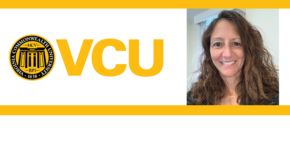 How do we help students with disabilities fulfill their career goals?
How do we help students with disabilities fulfill their career goals?
Susan McKelvey, research assistant professor at Virginia Commonwealth University, looks into this question.
Susan McKelvey is a research assistant professor at Virginia Commonwealth University where she serves as the Director of Research and Evaluation for the Transition Rehabilitation Research and Training Center (RRTC). Her research at the RRTC focuses on: pre-employment training for young students with disabilities; students with disabilities who are making the transition from school to post-secondary education or from school to work; and training for university personnel who work with students with disabilities. She holds a Ph.D. in Education, with a concentration in Research and Evaluation from VCU.
Giving Students with Disabilities a Chance to Fulfill their Career Goals
For students with significant disabilities, career exploration and workplace readiness are often overlooked. The Workforce Innovation and Opportunity Act of 2014 established new initiatives for Vocational Rehabilitation (VR) agencies such as Pre-Employment Transition Services, also known as Pre-ETS. Pre-ETS helps to prepare youth with disabilities by providing information to help them make informed post-secondary career decisions. The goal is to help them achieve a greater rate of competitive employment.
State VR agencies, schools, and community providers collaborate to provide Pre-ETS. Yet, VR agencies struggle to find the most effective ways to deliver Pre-ETS to youth with disabilities. To address this need, our research engaged families, educators, and VR counselors in Virginia and Kentucky in discussions on the delivery and impact of Pre-ETS.
These groups have similar views about the delivery of services to those early in their career planning process. In both states, educators and VR counselors would like more resources, such as ongoing training for providing Pre-ETS to younger students, as well as training on specific disabilities. Families recommended making activities engaging by increasing job exploration and work experiences.
Benefits of Pre-ETS include increasing students’ skills, knowledge and understanding of employment. However, schools, VR counselors, and families must improve communication during the Pre-ETS process.
The groups also told us that COVID affected their ability to provide Pre-ETS. While transportation and access to local businesses are often lacking, the pandemic exacerbated this problem.
If students with significant disabilities have increased access to businesses and embedded strategies for early career awareness in their curriculum, they would have a greater chance at fulfilling their career aspirations.
Read More:
https://transition.vcurrtc.org/

Comments
2 responses to “Susan McKelvey, Virginia Commonwealth University – Giving Students with Disabilities a Chance to Fulfill their Career Goals”
Very informative. Thank you!
Why did you choose such a sensitive word for the title? The judge rulled that our older daughter and astonshing sckolar probably died from an oxycitin overdos six years ago. She was about 39 years old at the time and was two years into her doctoral studies . Her older son was & still is an excellent scholar and now a freshman. Her younger son has all the problems mentioned in your article and access to some of your solutions. Given the title you chose I was looking for a different discussion. He is 14 rears old and many of your solutions are available but he is absolu]utely not willing to engage in a discussion. Finally our 8 year old grandson, cousin to the other two, has also been diagnosed as being on the autisiic spectrum = just last week.
Again I suggest that the title of your piece was insenstitive = unless you follow it through with something more helpful.
Respectfully
Allyson Macdonald
Prof. of Educational Studies
University of Icelnad
allyson at hi.is